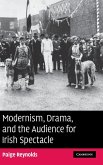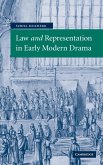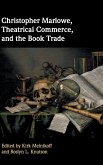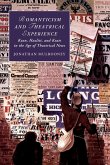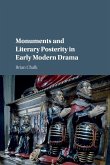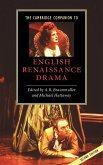This book gives a detailed and comprehensive survey of the diverse, theatrically vital formal conventions of the drama of Shakespeare and his contemporaries. Besides providing new readings of plays such as Hamlet, Othello, Merchant of Venice, and Titus Andronicus, it also places Shakespeare emphatically within his own theatrical context, insisting on his identity as just one of many working playwrights, and focusing on the relationship between the demanding repertory system of the time and the conventions and content of the plays. Lopez argues that the limitations of the relatively bare stage and non-naturalistic mode of early modern theatre would have made the potential for failure very great, and he proposes that understanding this potential for failure - the way playwrights anticipated it and audiences responded to it - is crucial for understanding the way in which the drama succeeded on stage.
Table of contents:
Introduction; Part I: 1. 'As it was acted to great applause': Elizabethan and Jacobean audiences and the physicality of response; 2. Meat, magic, and metamorphosis: on puns and wordplay; 3. Managing the aside; 4. Exposition, redundancy, action; 5. Disorder and convention; Part II: 6. Drama of disappointment: character and narrative in Elizabethan and Jacobean tragedy; 7. Laughter and narrative in Elizabethan and Jacobean comedy; 8. Epilogue: Jonson and Shakespeare; Notes; Index.
In this comprehensive survey of the diverse, theatrically vital formal conventions of the drama of Shakespeare and his contemporaries, Lopez proposes that understanding the potential for theatrical failure - the way playwrights anticipated it and audiences responded to it - is crucial for understanding how the drama succeeded on the stage.
A survey of the formal conventions of the drama of Shakespeare and his contemporaries.
Hinweis: Dieser Artikel kann nur an eine deutsche Lieferadresse ausgeliefert werden.
Table of contents:
Introduction; Part I: 1. 'As it was acted to great applause': Elizabethan and Jacobean audiences and the physicality of response; 2. Meat, magic, and metamorphosis: on puns and wordplay; 3. Managing the aside; 4. Exposition, redundancy, action; 5. Disorder and convention; Part II: 6. Drama of disappointment: character and narrative in Elizabethan and Jacobean tragedy; 7. Laughter and narrative in Elizabethan and Jacobean comedy; 8. Epilogue: Jonson and Shakespeare; Notes; Index.
In this comprehensive survey of the diverse, theatrically vital formal conventions of the drama of Shakespeare and his contemporaries, Lopez proposes that understanding the potential for theatrical failure - the way playwrights anticipated it and audiences responded to it - is crucial for understanding how the drama succeeded on the stage.
A survey of the formal conventions of the drama of Shakespeare and his contemporaries.
Hinweis: Dieser Artikel kann nur an eine deutsche Lieferadresse ausgeliefert werden.


